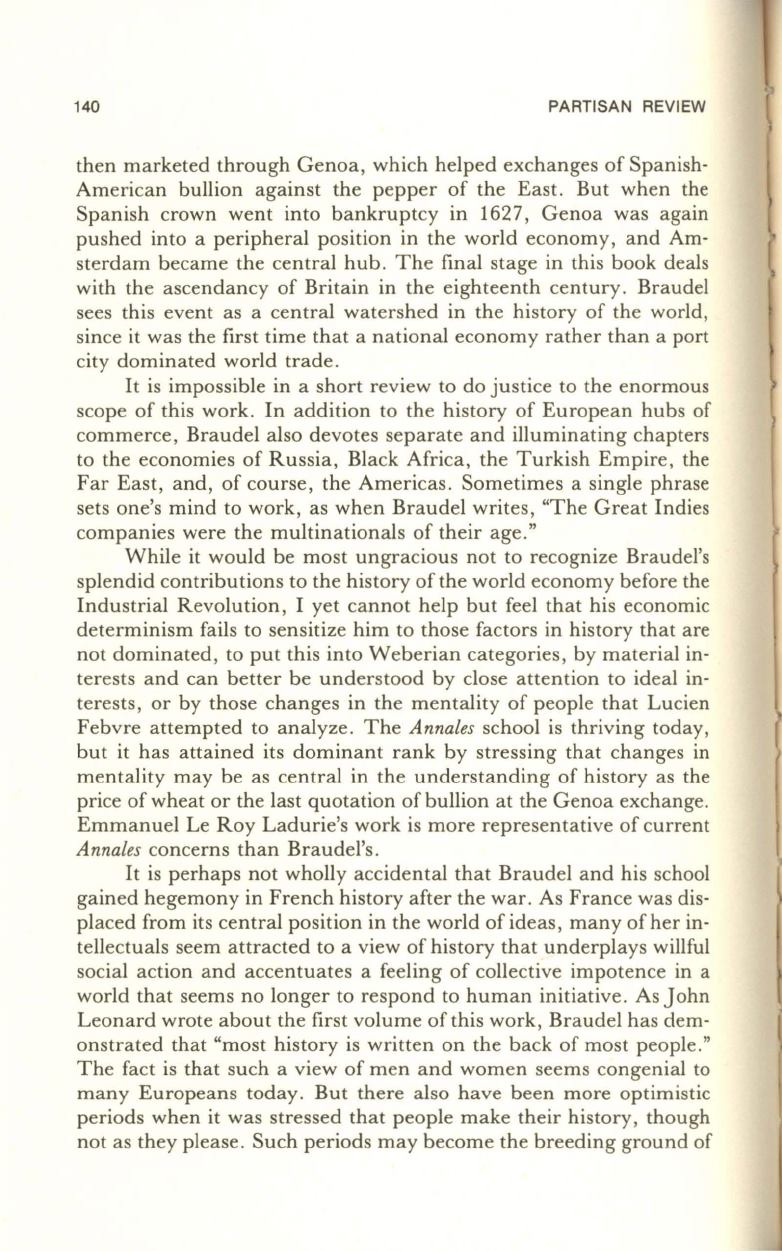
140
PARTISAN REVIEW
then marketed through Genoa, which helped exchanges of Spanish–
American bullion against the pepper of the East. But when the
Spanish crown went into bankruptcy in 1627, Genoa was again
pushed into a peripheral position in the world economy, and Am–
sterdam became the central hub . The final stage in this book deals
with the ascendancy of Britain in the eighteenth century. Braudel
sees this event as a central watershed in the history of the world,
since it was the first time that a national economy rather than a port
city dominated world trade.
It is impossible in a short review to do justice to the enormous
scope of this work. In addition to the history of European hubs of
commerce , Braudel also devotes separate and illuminating chapters
to the economies of Russia, Black Africa, the Turkish Empire , the
Far East, and, of course, the Americas. Sometimes a single phrase
sets one's mind to work, as when Braudel writes, "The Great Indies
companies were the multinationals of their age."
While it would be most ungracious not to recognize Braudel's
splendid contributions to the history of the world economy before the
Industrial Revolution, I yet cannot help but feel that his economic
determinism fails to sensitize him to those factors in history that are
not dominated, to put this into Weberian categories , by material in–
terests and can better be understood by close attention to ideal in–
terests, or by those changes in the mentality of people that Lucien
Febvre attempted to analyze. The
Annales
school is thriving today ,
but it has attained its dominant rank by stressing that changes in
mentality may be as central in the understanding of history as the
price of wheat or the last quotation of bullion at the Genoa exchange.
Emmanuel Le Roy Ladurie's work is more representative of current
Annales
concerns than Braudel's .
It
is perhaps not wholly accidental that Braudel and his school
gained hegemony in French history after the war. As France was dis–
placed from its central position in the world of ideas , many of her in–
tellectuals seem attracted to a view of history that underplays willful
social action and accentuates a feeling of collective impotence in a
world that seems no longer to respond to human initiative . As John
Leonard wrote about the first volume of this work, Braudel has dem–
onstrated that "most history is written on the back of most people."
The fact is that such a view of men and women seems congenial to
many Europeans today . But there also have been more optimistic
periods when it was stressed that people make their history, though
not as they please. Such periods may become the breeding ground of


